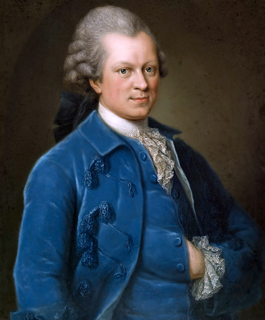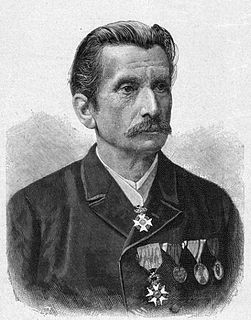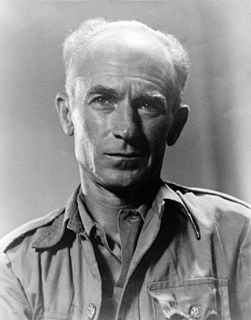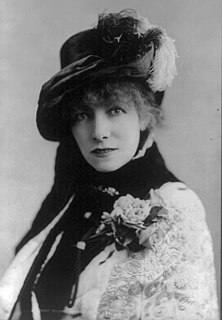A Quote by Gary Shteyngart
On that night I was left with only the truth that nothing of our personality survives after death, that in the end all that was Misha Vainberg would evaporate along with the styles and delusions of his epoch, leaving behind not one flutter of his sad heavy brilliance, not one damp spot around which his successors could congregate to appreciate his life and times.
Related Quotes
The true value of man is not determined by his possession, supposed or real, of Truth, but rather by his sincere exertion to get to the Truth. It is not possession of Truth by which he extends his powers and in which his ever-growing perfectability is to be found. Possession makes one passive, indolent and proud. If God were to hold all Truth concealed in his right hand, and in his left only the steady and diligent drive for Truth, albeit with the proviso that I would always and forever err in the process, and to offer me the choice, I would with all humility take the left hand.
Jesus said several times, “Come, follow me.” His was a program of “do what I do,” rather than “do what I say.” His innate brilliance would have permitted him to put on a dazzling display, but that would have left his followers far behind. He walked and worked with those he was to serve. His was not a long-distance leadership. He was not afraid of close friendships; he was not afraid that proximity to him would disappoint his followers. The leaven of true leadership cannot lift others unless we are with and serve those to be led.
Was his life nothing? Had he nothing to show, no work? He did not count his work, anyone could have done it. What had he known, but the long, marital embrace with his wife. Curious, that this was what his life amounted to! At any rate, it was something, it was eternal. He would say so to anybody, and be proud of it. He lay with his wife in his arms, and she was still his fulfillment, just the same as ever. And that was the be-all and the end-all. Yes, and he was proud of it.
The master in the art of living makes little distinction between his work and his play, his labor and his leisure, his mind and his body, his information and his recreation, his love and his religion. He hardly knows which is which. He simply pursues his vision of excellence at whatever he does, leaving others to decide whether he is working or playing. To him he's always doing both.
To live his life in his own way, to call his house his castle, to enjoy the fruits of his own labour, to educate his children as his conscience directs, to save for their prosperity after his death -- these are wishes deeply ingrained in civilised man. Their realization is almost as necessary to our virtues as to our happiness. From their total frustration disastrous results both moral and psychological might follow.
My husband's personality was filled with serenity and sunlight. Not even the incurable illness which fell upon him soon after our marriage could long cloud his brow. On the very night of his death he took me in his arms, and during the many months when he lay dying in his wheel chair, he often said jokingly to me: 'Well, have you already picked out a lover?' I blushed with shame. 'Don't deceive me,' he added on one occasion, 'that would seem ugly to me, but pick out an attractive lover, or preferably several. You are a splendid woman, but still half a child, and you need toys.
The Master gives himself up to whatever the moment brings. He knows that he is going to die, and her has nothing left to hold on to: no illusions in his mind, no resistances in his body. He doesn't think about his actions; they flow from the core of his being. He holds nothing back from life; therefore he is ready for death, as a man is ready for sleep after a good day's work.
His face set in grim determination, Richard slogged ahead, his fingers reaching up to touch the tooth under his shirt. Loneliness, deeper than he had never known, sagged his shoulders. All his friends were lost to him. He knew now that his life was not his own. It belonged to his duty, to his task. He was the Seeker. Nothing more. Nothing less. Not his own man, but a pawn to be used by others. A tool, same as his sword, to help others, that they might have the life he had only glimpsed for a twinkling. He was no different from the dark things in the boundary. A bringer of death.
For those who do not make the transition to a matured, more spiritual self-will reason will indeed be no more than rationalization. Here is a prodigious parallel: just as in antiquity the dysdaimonic personality could not appreciate how his mentality was bound in by his characterological (banausic, doulic) biases, so in modernity the facile or abstractivist rationalist cannot comprehend how his "rationality" merely slavishly subserves his appetites, delusions, preconceptions, ideologies, etc.
The artist's personality must be left in his dressing-room; his soul must be denuded of its own sensations and clothed with the base or noble qualities he is called upon to exhibit.... [he] must leave behind him the cares and vexations of life, throw aside his personality for several hours, and move in the dream of another life, forgetting everything.
Where man had been, in every place he left, garbage remained. Even in his pursuit of the ultimate truth and quest for his God, he produced garbage. By his garbage, which lay stratum upon stratum, he could always - one had only to dig - be known. For more long-lived than man is his refuse. Garbage alone lives after him.





































